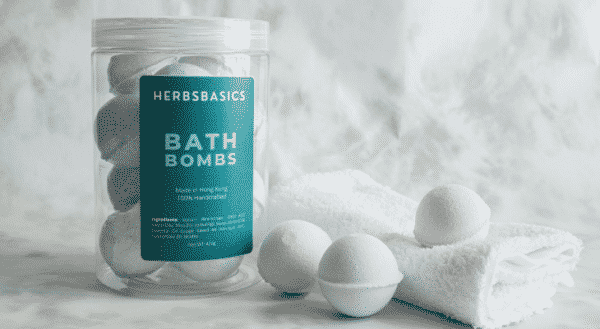Our health at the shelf in 2022
The past two years of “living with COVID” has brought a seismic shift in the way we feel, think, live, work and play. Worry, sleeplessness, boredom, loneliness, lack of exercise, too much screen time, more family time, less travel time, less sunshine…and the list goes on. Our values have shifted, our purchasing habits have evolved and our demands on the brands we buy are ever-present.
What will we take into 2022, how will that impact the products we see on physical and virtual shelves and what can we learn to delight the modern consumer?
Climate friendly products and those combating COVID related lifestyle issues top the list, along with a renewed drive for trust, transparency, and personalisation as we dive deeper into the connections between health, online shopping and technology.
According to Gillian Fish, CEO of leading wellbeing and good living marketing firm The 6AM Agency the biggest change is the home becoming the centre of our universe.
“This space, once used mostly for personal, family and friends, now includes space for work and school. Consumers are recalibrating the way they live and consume,” she says.
“Brands need to be cognisant of the deep and rapid shift, and recalibrate their communications strategies, firstly by redefining how they connect with audiences – we should evolve from B2C (Business to Consumer) to B2H (Business to Human) to ensure we understand the hopes, the fears, the challenges facing our audiences – a sense of grief and loss for what life was before, for being disconnected from families and friends for long periods of time, meaning empathy and authenticity is key, as brands help their audiences traverse this time, with relevance and sensitivity.”
The impact at shelf
1. COVID related lifestyle products
HealthyLife General Manager Merchandise & Partnerships Martine Cooper expects sales for products related to COVID-19 and other health issues including sleep, stress and gut health will continue to grow in 2022.
“We’ve noticed a lot of our customers are shopping for products related to COVID-19 and immunity building. For example, sales for rapid antigen tests in the lead up to Christmas parties and social events continue to increase, particularly in Victoria and New South Wales. We’ve also noticed an increase in shoppers searching and purchasing products that can help boost natural immunity, particularly sleep aides, stress and gut health.
“We expect these categories will continue to grow in 2022, along with other selfcare at home related products such as herbal teas, candles and aromatherapy, and bath products like bath bombs and salts, added Ms Cooper.

Head of Products at Unique Health Products, Anita Smith says as people emerge from living in tracksuit pants and working from home, they’re relearning social norms and moving between overindulging in social activities to needing to recharge their batteries. Products for healthy gut, stress and sleep are important as stress affects the gut, as well as gut health and skin. She expects low sugar and sugar alternatives to grow as consumers continue to seek satisfying their sweet tooth with permissible indulgence and better for you snacking, adopting a “Swap Don’t Stop” philosophy. We also want convenience with quick bake ‘mug cakes’ growing in popularity. And sunscreen is sexy again as we emerge from months indoors.
2. Climate friendly products
Climate change is top of mind and where possible we’re all making changes and “buying better” to reduce, reuse and recycle. From new plant-based meat and milk alternatives to upcycled food, refillable and single use plastic replacements and compostable packaging, in 2022 sustainability is front and centre and according to research we’re willing to pay more for it.
Salmat and ACRS research showed Australian consumers are willing to pay more for environmentally friendly products from sustainable companies. Almost three quarters ranking ethical brand behaviour among their top three priorities in shopping for products. More than a third buy sustainable products, but 31 per cent said they don’t purchase a brand or product that doesn’t adhere to their values, ethics or sustainability practices.
Ms Smith said consumers are looking for products that align with their ethics, including specific diet concerns or intolerances, plant-based alternatives, and low waste eco-conscious specific products. Sustainability concerns are now mainstream and will continue to be a driving force into 2022 and beyond.
Martine Cooper said the past two years of spending more time in our homes has led to shoppers being more conscious of ingredients in cleaning products.
“Research suggests over 90 per cent of shoppers are willing to try eco-friendly household product alternatives. We expect demand in this category will continue to grow as there are many more innovative products in the new line pipeline designed to reduce toxins and waste in the home.

“We have recently bolstered our eco-friendly home and cleaning range, adding 145 new products to our range. The Koala Eco and Simply Clean have been popular with our shoppers, along with products that support low-tox living, including replacements for single use plastics, such as ‘Single use aint sexy’ dissolvable hand soap tablets and reusable glass bottles, beeswax wraps, coconut bowls, Ever Eco sustainable lifestyle range and porter green foldable wine tumblers,” she says.
“Another trend in the sustainability space is ‘upcycled food.’ We’ve recently launched ‘I am Grounded’, a wellness social enterprise that upcycles the natural by-product of coffee fruit into sustainable snacks for mind-full eating. We expect this upcycling trend to become one of the next big things. Watch this space!”
3. Credibility counts
With unsettling times and misinformation rife, comes a renewed requirement for trust and transparency. Ms Fish says brands must meet this need by engaging in deep listening to understand audiences and build trust over time, starting in their own backyards with employees.
At HealthyLife there’s a shift towards customers searching and purchasing practitioner grade ranges of vitamins and supplements and brands they trust such as Medlab, Designs for health and Bioceuticals, according to Ms Cooper.
“We know that shoppers are looking for tailored advice and product recommendations, particularly in the vitamin and supplement space. That’s why we offer a range of practitioner only products. Our range has been curated by a team of qualified health professionals with combined knowledge across naturopathy, nutrition, and pharmacy. Our practitioner only range can be purchased by simply completing a short health questionnaire, or via a free online consultation with one of our qualified practitioners. We’ve seen strong interest in virtual consultations since we started offering the service in October.”
4. Personalise and empathise to profit
According to Ms Fish our growing use of digital technology during the pandemic has levelled up our expectation of tailored services and solutions.
“With the switch to a digital-first world during the pandemic, the trend of personalisation in wellbeing is firmly entrenched in our way of life, from DNA testing to personalised virtual health consults; personalised vitamin prescriptions and nutrition all on the rise, supported by machine-learning algorithms which guide what we should eat to suit our specific nutritional needs for a healthy life,” she says.
“We can’t afford to only see our audience as a demographic or an age group because within that you have so many experiences, and different directions people are taking after the disruption of the pandemic.
“This seismic shift is real, and brands must move to understanding what truly matters and where the audience sits on the mental wellbeing scale.”
To discover more natural, organic and healthy products and brands, browse the Naturally Good Product Directory.
Lisa Crawford Jones is an award-winning journalist, business consultant, and Content Manager to Naturally Good.
-
Get your FREE ticket
- REGISTER FOR FREE
